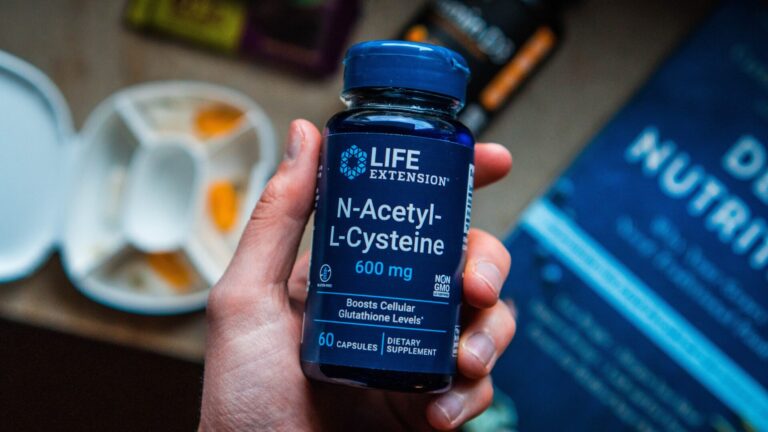Top 7 Reasons Why Genetic Tests Can Lead to Better Nutrition
You’ve probably heard that genetic tests can discover lactose intolerance, how fast we metabolize caffeine or absorb certain vitamins. But is it true that genetic tests can lead to better nutrition? Let’s find out.
Creating or structuring a one-fits-all diet is nearly impossible. Everyone is so different that trying to pursue the path of “the superior diet” might be too far extended. The research in the field of medicine, genetics, and nutrition is relatively advanced, but there are still numerous reasons why we can’t make a “one optimal diet” for everyone
The bad habits we all know aren’t good for our health, are already out there. Research shows why excessive tobacco and alcohol, why too much processed and refined sugars or excessive intake of saturated fats are bad for us. We also do know what we should do. Eat more vegetables, drink more water, be active, increase the intake of complex OH and fiber, etc. But there are still many strong misconceptions about eating meat, avoiding lactose, ketogenic diets, etc.
We are continuously bombarded with information in different advertisements, programs, and articles about which diet is the best one for us. But, how do you really know? This is where genetic tests take place.
What are Genetic Tests?
Genetic tests are tests done to examine your DNA structure, which gives instructions for the replication of specific cells in your body. It is the chemical database that discovers many aspects of your systemic response to the environment, food, stress, etc.
Genetic tests mainly study DNA sequences to determine potential changes in your DNA, which can offer a great overview of how your organism responds to external stimuli. This can help us discover your potential to develop a disease, determine the best type of training intensity and even optimize your diet.
Genetic tests can study, test, or analyze:
- Variations or mutations of specific gene
- Gene Expression (turned on or off)
- Individual nucleotides or building blocks of DNA
- The activity of specific proteins or enzymes
- Chromosomes copies (duplicated or missing copies) and changes
We’ve progressed to a very advanced stage of genetic testing. The new tests developed can give us a pretty good image of how our body, our motor for food metabolism works. With only one hair sample, a blood, skin, or saliva sample which can be taken in a few seconds we can get a deep image of one’s genetics. These are of course possible with the help of a professional/scientist who can analyze these results in a laboratory.
Fun Fact
The results of DNA tests can tell us a lot about how our body replicates and regenerates itself, processes food and drugs, tolerates training intensity, or has the potential to develop a certain disease.
The Way to Optimal Nutrition is – Individual
To optimize one’s nutrition is to individualize it. The results of the gathered data from this genetic test mean zero to someone who can’t read it. Give me a book written in Swedish and I’ll understand nothing, so will these tests, if you can’t interpret them.
This is where the collaborative work of an expert in nutrigenomics, scientists, nutritionists, or chemists can give us a clear and concise view of our genetics. We can then understand the way our body works, why or how we can or can’t process, digest, or absorb certain foods, and what type of activity will best fit us.
This will in turn, with proper guidance lead to better and healthier nutrition choices specifically made for us, tailored to our needs. Since everyone is different, one diet for the general population won’t work as well for everyone.
Nutrigenomics offers a superior way of diet optimization and supplementation. It has a better starting point for assessing our strengths and weaknesses, which can help us in the long term.

Top 7 Reasons Genetic Tests Can Lead To Better Nutrition
As we’ve read before, genetic tests can give us good information about our body’s ability to process and tolerate food or drugs. The field studying the relationship between nutrition and gene expression is called nutrigenomics.
Here’s a quick overview of the 6 key ways, genetic tests can improve our nutrition, by understanding our bodies.
1. Discovers the potential of developing certain diseases
Genetic tests were primarily used and developed to understand the role of genes, gene expression, and DNA structure in developing or therefore contributing to a specific disease. Knowing this before we develop a disease can help us understand what are we sensitive towards, and give us a potential way to prevent it.
Genetic tests are known to discover the potential of developing celiac disease, cancer, Parkinson’s and Alzheimer’s disease, obesity or diabetes, macular degeneration, and cardiovascular diseases.
The only limitation here is that a specific genome image only shows potential, which doesn’t mean someone will develop that disease. It shows tendency, possibility, and potential, rather than clearly predicting. (1)
2. Detects lactose tolerance, giving guidelines for milk products consumption
There is no shortage of people who think that milk or milk products are bad. Unfortunately for many of us who really do enjoy some hard cheese, chocolate milk, and vanilla yogurt. However, the good news is that not all of us are sensitive to lactose.
The enzyme which breaks down lactose is called lactase. As we age, our lactose-digesting ability or lactase function is significantly reduced. Some people have superior enzyme activity and can continue to consume milk products. (2)
Fortunately, not in all of us, hence why genetic tests can be a great tool to discover this. Matter of fact, some of the most bioavailable proteins and probiotics are present in milk and milk products like cheese, yogurt, and kefir.

3. Discovers the type and quantity of fats you should eat
Although many people believe fats are bad macronutrients, fats are just as essential as carbohydrates and proteins. The type of fat we eat matters, and the way we process and utilize it for energy matters too. Some people can eat higher amounts of fat and will have high levels of energy and mental alertness.
On the other side, some people are very sensitive to fats, and experience digestive issues, gastrointestinal distress (you know what we mean), fatigue, and low energy. Testing our genes involved in the metabolism of fat can give us a better understanding of how to consume fats, and which ones.
While science has developed a relatively bad image for saturated fats, it is important to understand that not all fats are created equal. We can’t split fats on healthy and unhealthy. Even the polysaturated and monosaturated vs. unsaturated isn’t specific enough.
For example, grass-fed butter contains CLA, a type of omega 6 FA which is thought to be trans-fat. It doesn’t take the average reader a lot to find bad info on trans fats in today’s media, which isn’t the case with CLA. However, most people will benefit from increasing the intake of Omega 3 FA, improving the Omega 6 to Omega 3 FA ratio.
Others might experience digestive issues, low energy, and fatigue. Most people will benefit from eating more antioxidant-rich polyunsaturated fats like omega 3 fatty acids, as they are proven to be potent antioxidants, and increase antioxidant capacity and antioxidant defense system. (3)
4. Gives you guidelines for proper carbohydrate consumption
The way we process carbohydrates depends on several factors. Some people will have their sugar levels rising a lot higher after consumption of the same type and quantity of sugar compared to someone else.
Poor sugar control often means inefficiency to stabilize blood sugar levels, but why? People have different abilities to secrete insulin, a hormone involved in glucose transportation. So, what happens next? Our blood sugar levels fluctuate, which is known to cause short bursts of energy followed by an energy crash (sugar dip,… not that kind). This poor carbohydrate metabolism can lead to diabetes, obesity, and even cardiovascular diseases.
To control sugar levels and reduce the potential of insulin resistance development which can lead to diabetes, we need to understand how capable is our body in absorbing and processing sugar. This will depend on enzymes, insulin secretion, fiber content, etc. Genetic tests can help us choose types of OH more suitable for our bodies.
By understanding this data, we’ll get a better image of the total glycemic load optimal for us, what type of OH is more suitable for our digestive system, and the right quantity to consume.

5. Explains how your body absorbs certain vitamins/minerals
As the primary or essential nutrients involved in metabolism, growth, immunity, and development, vitamins and minerals are very important. There are standard vitamin and mineral dosage recommendations to take in with our diet.
- The way we absorb, metabolize and use these vitamins or minerals depends on many factors. One among this is enzymes – their quantity, and activity.
- With genetic testing, we can get a clearer picture of how our body can absorb and use specific vitamins and minerals, and adapt our nutrition accordingly.
For example, if the standard recommendation for vitamin D is 600 IU, but we lack specific enzymes related to its absorption, genetic tests can give us a hint that we may need to increase our vitamin D intake.
This works with other micronutrients as well. Understanding these little tweaks we need to make in our diet can lead us to optimal health and performance in the long run. We don’t develop an appetite for vitamin B12 (or any other micronutrient for that matter), we develop an appetite for sugar. Many people can’t detect a lack of certain vitamins or a lack of our ability to absorb or utilize it. This is why genetic tests work.
6. Detects the right training intensity for efficient transformation
Our genome can also explain a lot about the training intensity we can be the most efficient at. Some people with more fast-twitch fibers will lean towards high-intensity training for shorter duration like sprints, jumping rope, and rowing. Others might be more efficient in sustaining longer duration of low-intensity activities like running, swimming, or cycling.
The body adapts to exercise stimuli. If we lift weights, we’re more inclined to get stronger and grow muscle. If we’re constantly running at a moderate pace for a longer duration, inevitably, we’ll improve endurance. Genetic tests can guide us in choosing a better type, intensity, and duration of training.
7. Finds a better way to consume alcohol and coffee
We all know that excess alcohol or coffee consumption has serious side effects. But where do we draw the line, where do we say this amount of alcohol and caffeine, is good for you?
The way one metabolizes caffeine and alcohol can differ significantly. We all know of people who are shaking after one cup of coffee, and people who are drunk after one glass of wine.
Understanding the way we can metabolize them, gives us a good guideline for whether we should minimize their consumption, or we can tolerate more.
There are genetic studies that include a wider genome association with caffeine consumption and its effects on neurodegeneration, sleep, and anxiety. (4)
Per example, if we lack genes that encode enzymes known for fast and efficient caffeine metabolism, we might want to lean towards consuming decaffeinated or medium-caffeine coffee and also limit any extra caffeine consumption to mid-day.
conclusion
The way we absorb, metabolize, and utilize food for energy is very individual, depending on factors like hormones, enzymes, genes, etc. Genetic tests can help us understand the way our biology works, by analyzing gene variations, expression, and copies. With this data, we can create a more individually optimized diet plan that will fit our needs.








